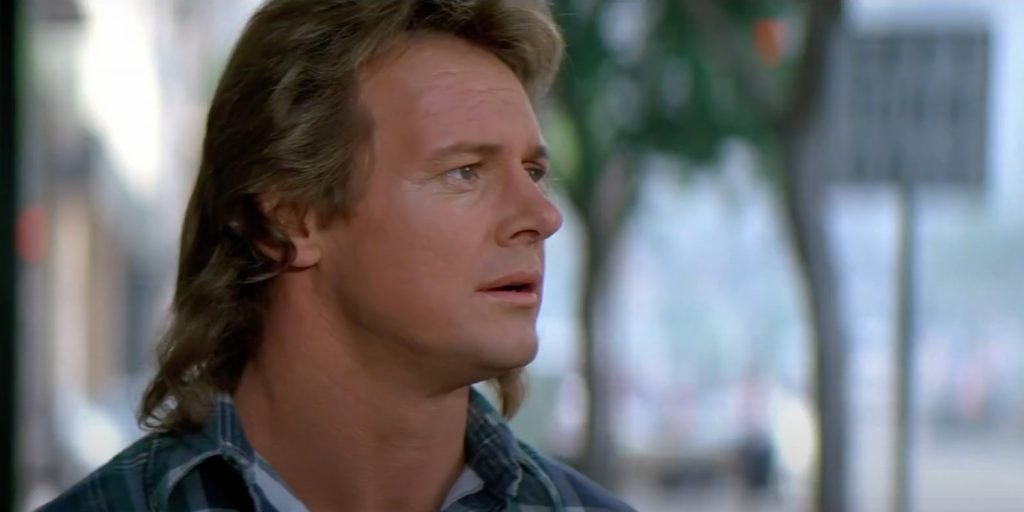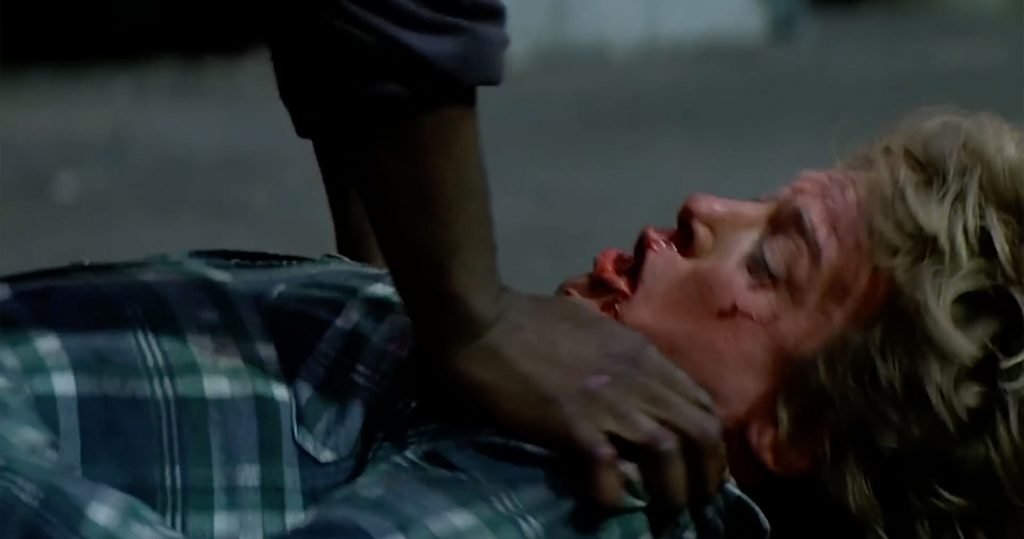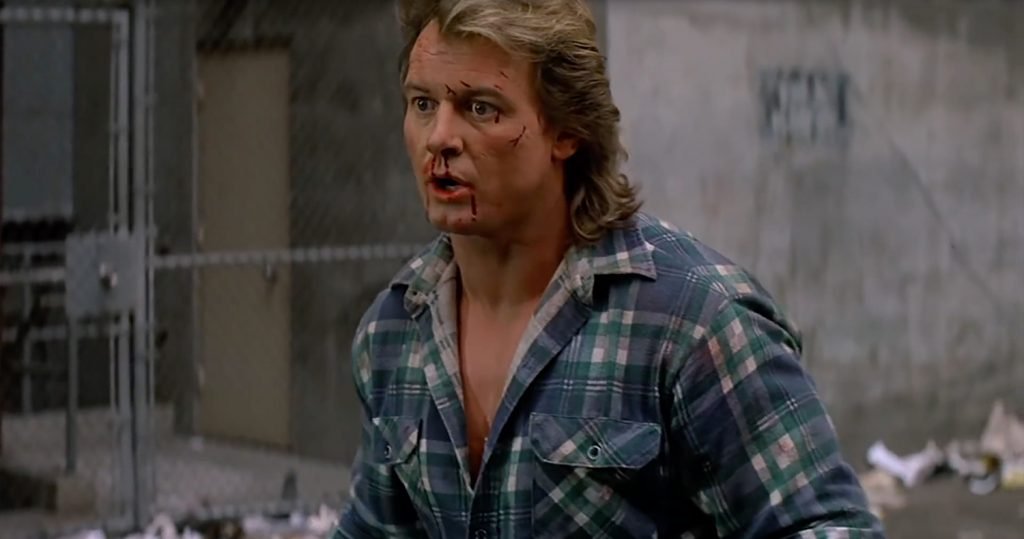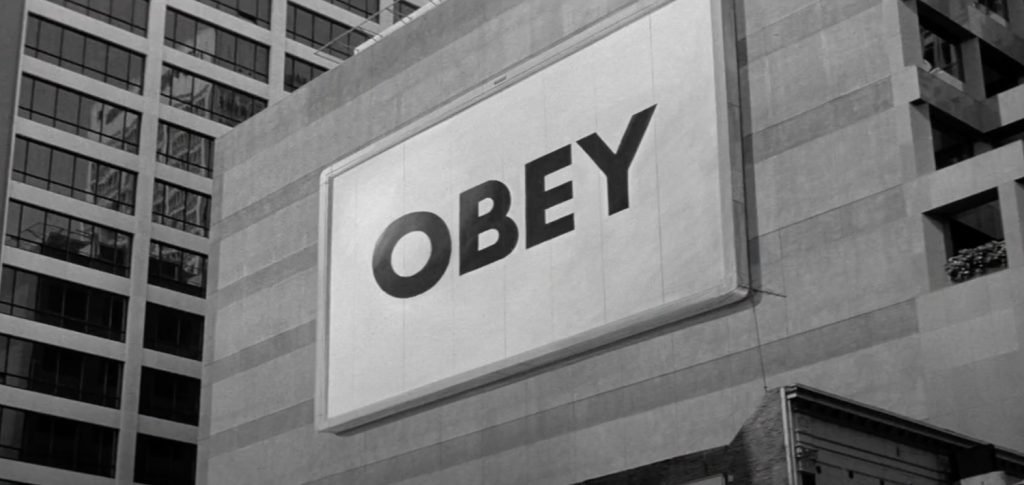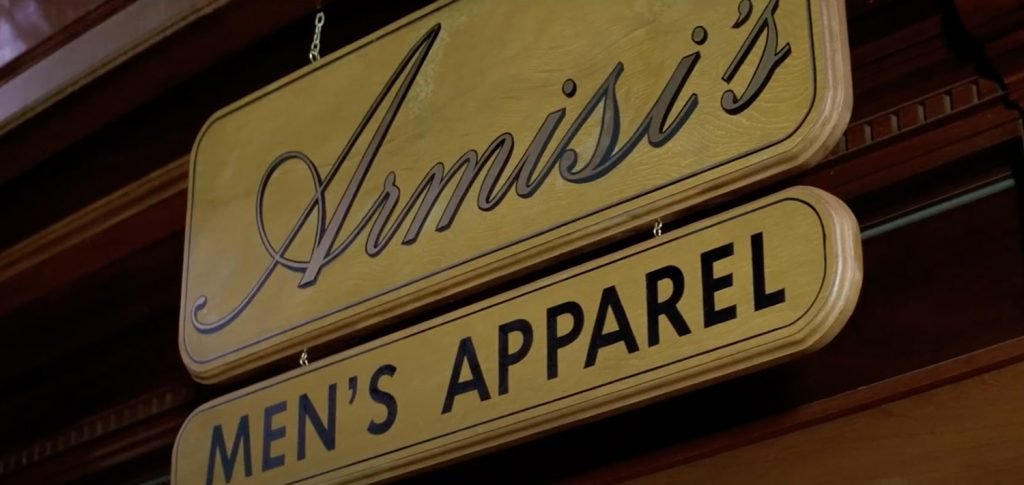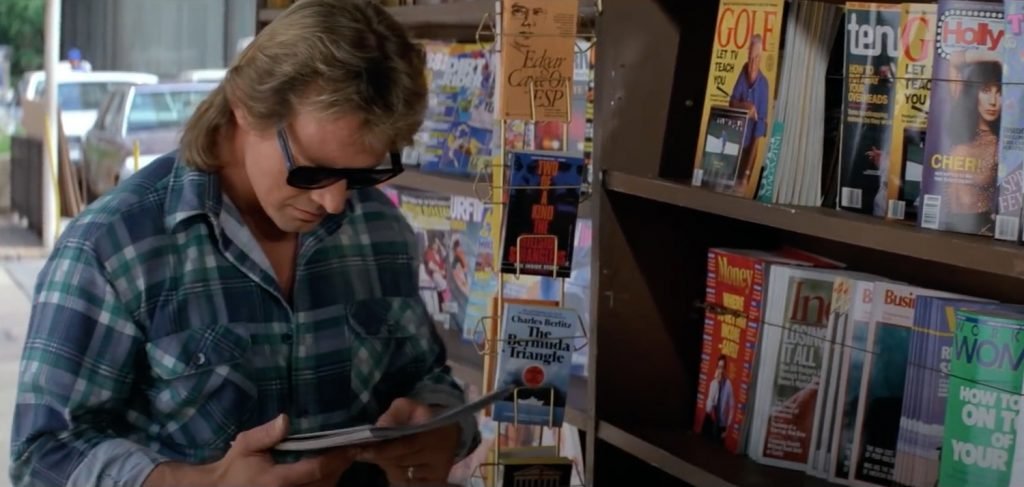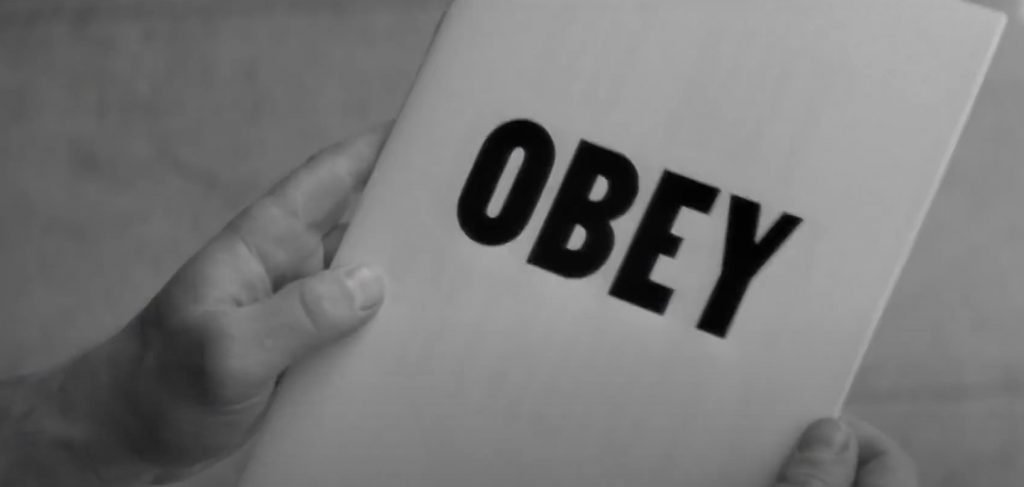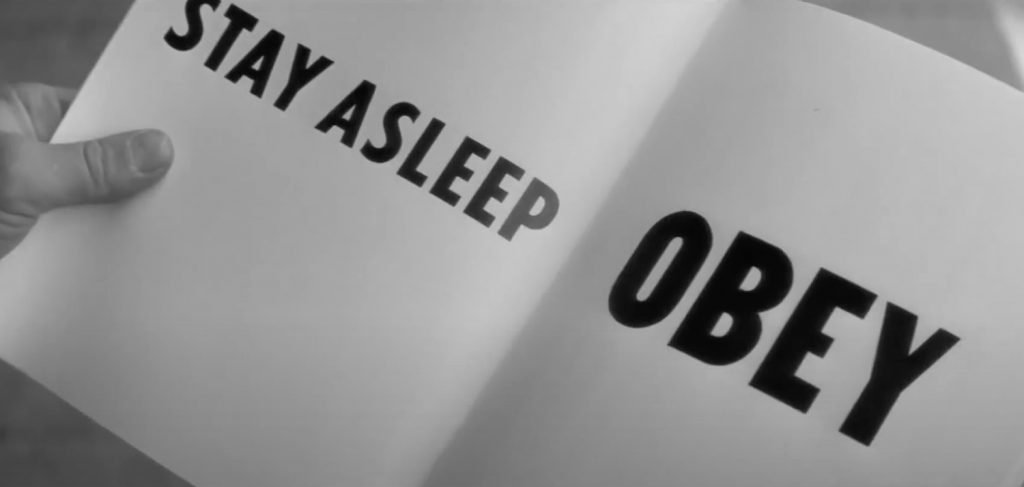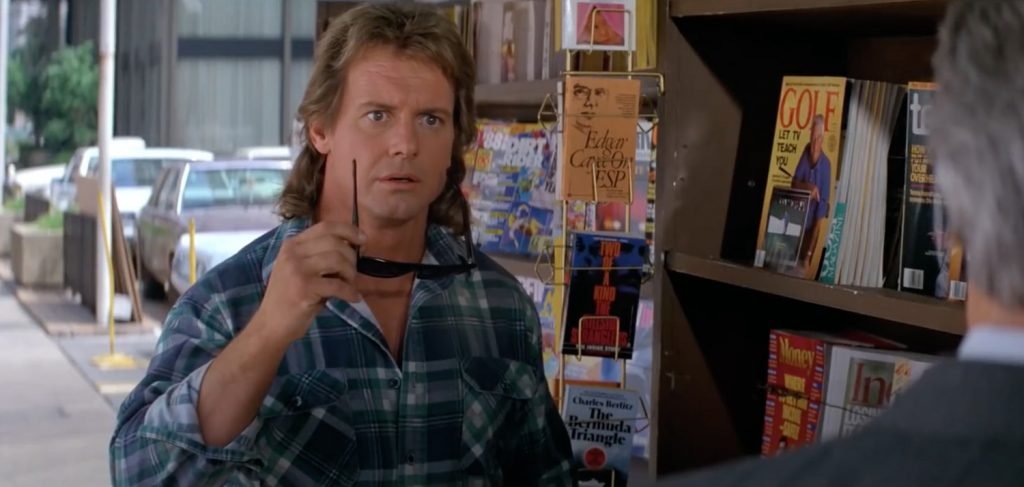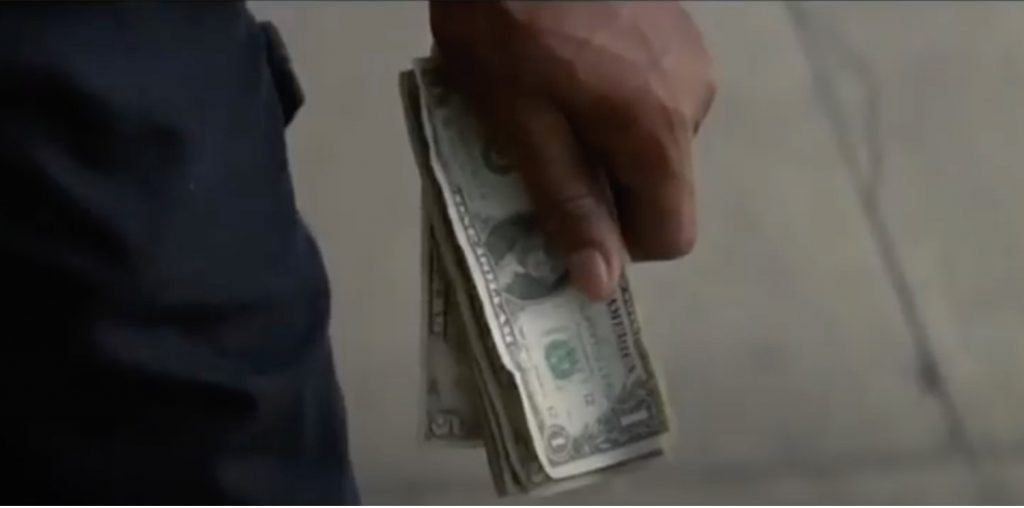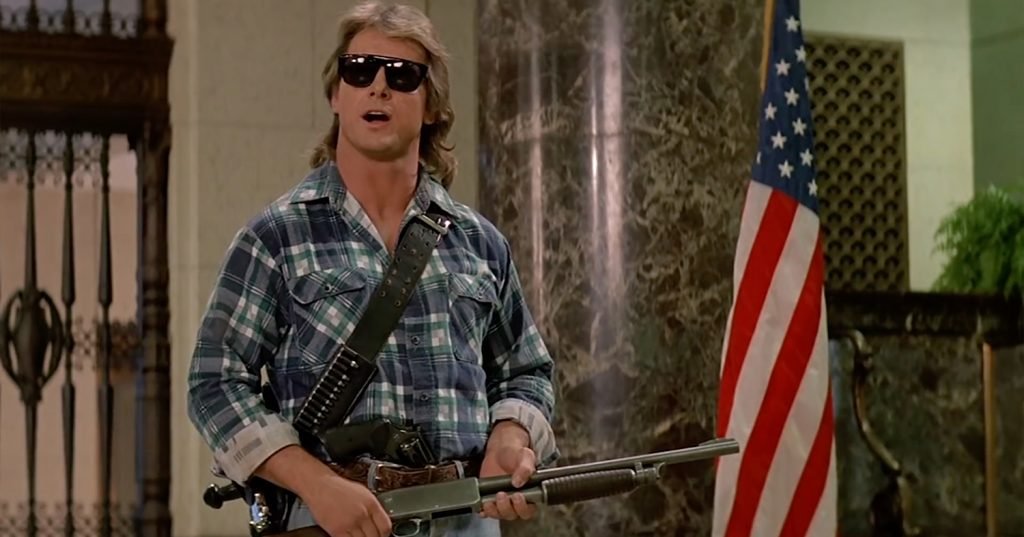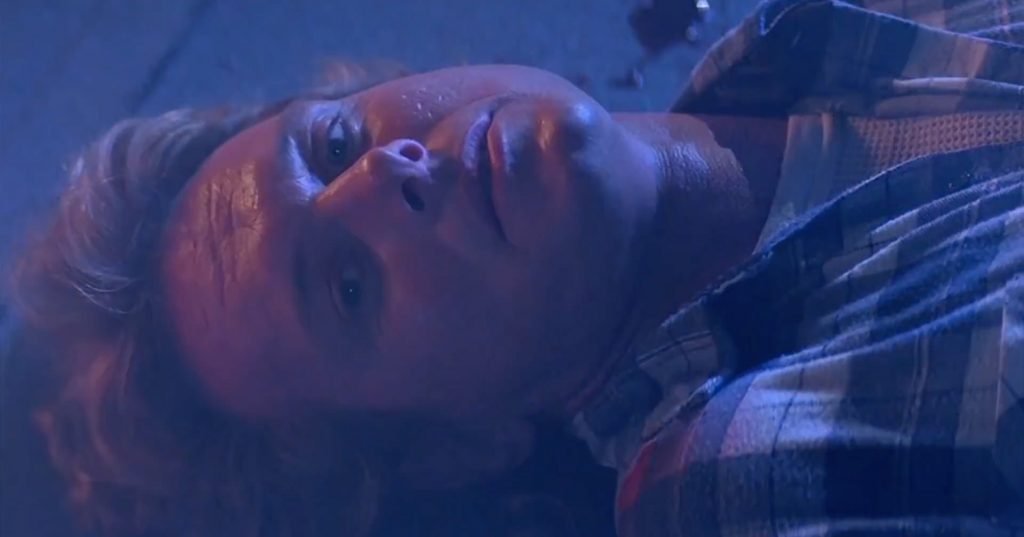“This glasses function like critical ideology glasses.They allow you to see the real message beneath all the propaganda, publicity, posters and so on”.
“You see dictatorship in democracy, it’s the invisible order which sustains our apparent freedom”.
“The extreme violence of liberation. You must be forced to be free. […] freedom hurts”.
Slavoj Žižek
Among the many films created by John Carpenter during his long and rich film career – a path characterized by an interesting fusion of genres, suggestions and ideas that still prove being incredibly effective in conveying the director’s message – They live (1988) deserves undoubtedly attention.
Territory of transition from comedy to science fiction, from grotesque to action movie, the film is made through a series of themes whose complexity must be traced in the attempt to organize a strong political denunciation without renouncing, however, to a use of visual and narrative language capable of belonging to everyone and thus expose its concept to the viewer in a simple and clear way.
Inspired by Ray Nelson’s tale Eight O’Clock in the Morning (1963), the story told by the film is that of John Nada, (played by Canadian wrestler “Rowdy” Roddy Piper), a homeless worker from Los Angeles who, in search of a job, after a few attempts is hired as a worker on a construction site, where he meets Frank (Keith David), an African American whose aid helps John to find accommodation in a slum in the suburbs.
In a nearby church, John accidentally discovers an extraordinary object: a pair of sunglasses that allow you to see reality beyond all appearances. The glasses, in fact, instrument endowed with the ability to show the true nature and true functioning of reality, reveal (the director uses black and white to underline the contrast between appearance and truth) how the whole of American high society is mostly made up of terrifying zombie- like skeletal aliens.
A population of alien-monsters that governs humanity now enslaved, through advertising messages. Thanks to the glasses in John’s possession, in fact, he is able to see the true message hidden behind every magazine, behind every advertisement and every television program, discovering how in fact behind each of these are hidden subliminal messages that are presented clear in their intentions. The discovery of commands such as “obey”, “watch television”, “buy”, “marry and reproduce” leave no doubt about the dictatorial nature of the system in which the protagonist lives.
Carpenter’s operation is clear and strong; adopting the metaphor of alien control to represent the hardships of capitalism and unbridled consumerism, the director not only elaborates a denunciation of the economic policies promoted by Ronald Reagan in the 1980s but, identifying the high class as aliens and therefore as an enemy, John Carpenter insinuates the concept of class struggle into the Hollywood narrative experience.
Despite the linguistic impression given by a management of the image and narrative times that do not differ at all from the experience of an action cinema, in They Live the complexity of political and socio-economic analysis is anything but simplistic.
In the film, it is the perception of the value of money that conveys the biggest problem of the economic system that John openly disputes.
In the form in which money itself appears in the hidden reality, the banknotes are in fact presented as colorless paper, thus not representing an actual concrete and quantifiable value but an abstract value, explicitly found in the only writing that can be seen on them:
“God”.
Through this scene, the director thus implements an interesting analogy between the perceptual mechanisms that govern the architecture of capitalism and the reality that the film’s protagonist finds himself unmasking.
The true strength and intelligence of this work, however, should not be found so much in the criticism that the film moves, but rather in the way in which it is brought to the viewer or, better said, in the way in which it is presented through a narration and images of undoubted originality.
If, in fact, They Live is the result of a curious mix of genres, it is precisely this characterization of mainly entertainment genres that makes the film extremely enjoyable and entertaining despite the fact that the subject is neither light nor devoid of “reality”.
The unsettling interpretation of Roddy Piper, who from a taciturn worker sees himself transformed into an exterminator of aliens led by a blinding as well as sudden and exalted need for truth, is just one of the many elements of the narration that makes this movie a small masterpiece, a film that through the oscillation between narrative postures and masterful visual insights gives the subject memorable metaphors-scenes.
Among the most significant scenes in this sense, there is the very long and violent street fight sequence between the protagonist John and his colleague Frank, during which the “spectatorial” awareness of the nature of the object of the dispute – John would like his friend to wear the glasses – finds itself having to deal, in parallel with the certainties of the protagonist himself, with the stubbornness of Frank, who seems willing to give his life rather than give in to John’s request, a reticence that expresses extremely well, metaphorically, the difficulty in elaborating a critique of ideology, an ideology, which until proven otherwise, despite everything constitutes the only reality that we know and share. Or to tell it with a now famous statement by Mark Fisher “the widespread feeling that not only capitalism is the only viable political and economic system, but that it is impossible even to imagine a coherent alternative”.
Confirming Carpenter as a director of the always surprising and unexpected outcomes, They Live is a film capable of passing from the shock of the narrative invention of the science fiction-horror genre, to the grotesque and metaphorical representation of a socio- economic system whose dynamics and whose reality do not deviate from ours, a description so strong as to place the same film, at the same time, in extreme realism.
Accompanying the complexity of the film with a constant minimalist sound commentary, traditionally composed by Carpenter himself and by frequent collaborator Alan Howarth, the American director establishes a playful relationship with the viewer, for which the expectations of the same are distorted sequence after sequence, a never banal procedure that aims both to keep the spectator in the story and to orient the spectator within a critical perspective of the reality that as a spectator, he lives-undergoes.
Fierce satire of 1980s yuppism with rampant aliens conquering the earth through subliminal messages, occult advertising and collective hypnosis, Carpenter elaborates with originality and intelligence a paraphrase of the consumerist world still very current today, which underlines the enormous social differences between classes and summarizes the indifference of modern man towards the decay of social values. A great independent film that has left its mark in the history of sci-fi cinema indelibly.





